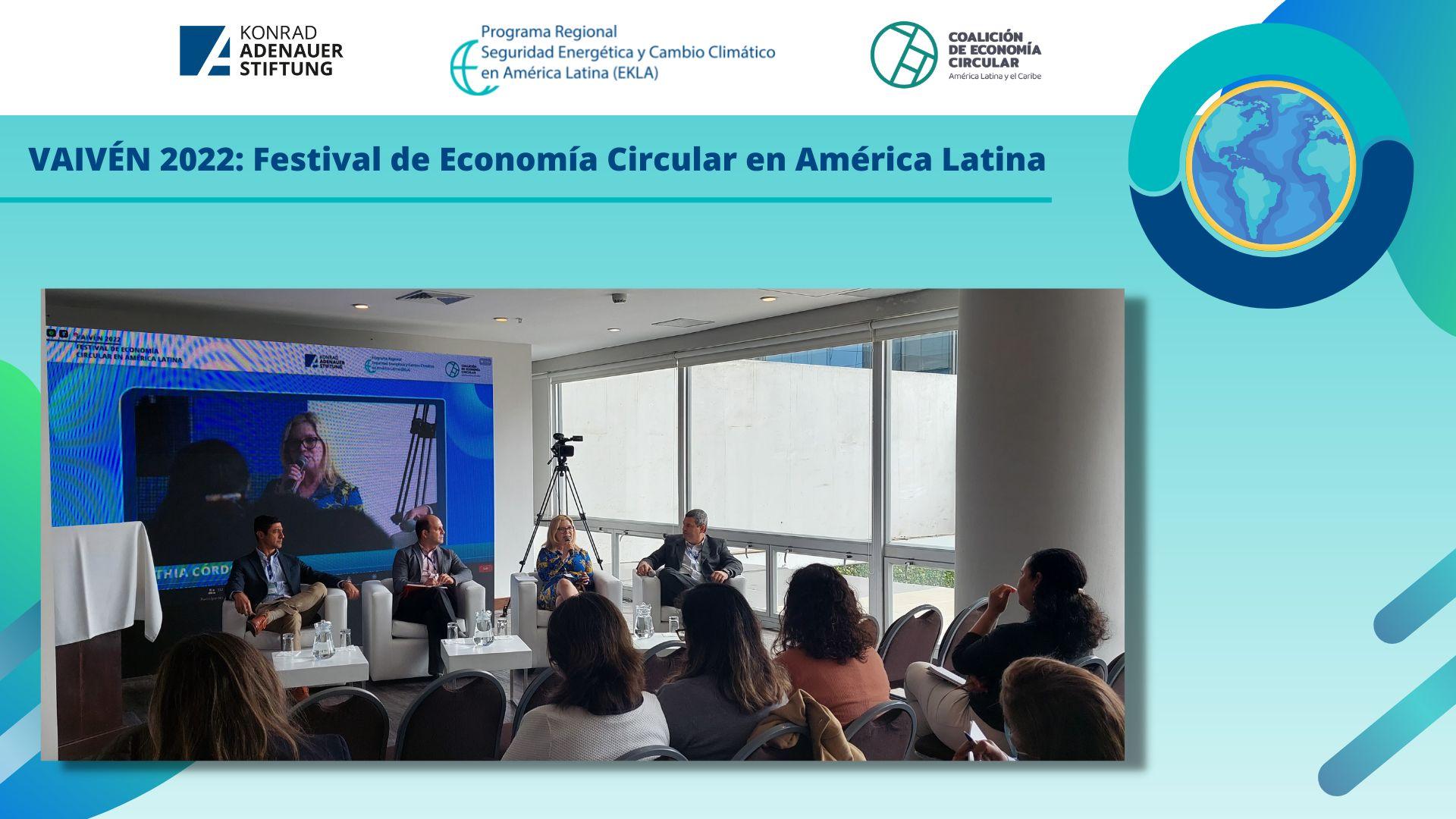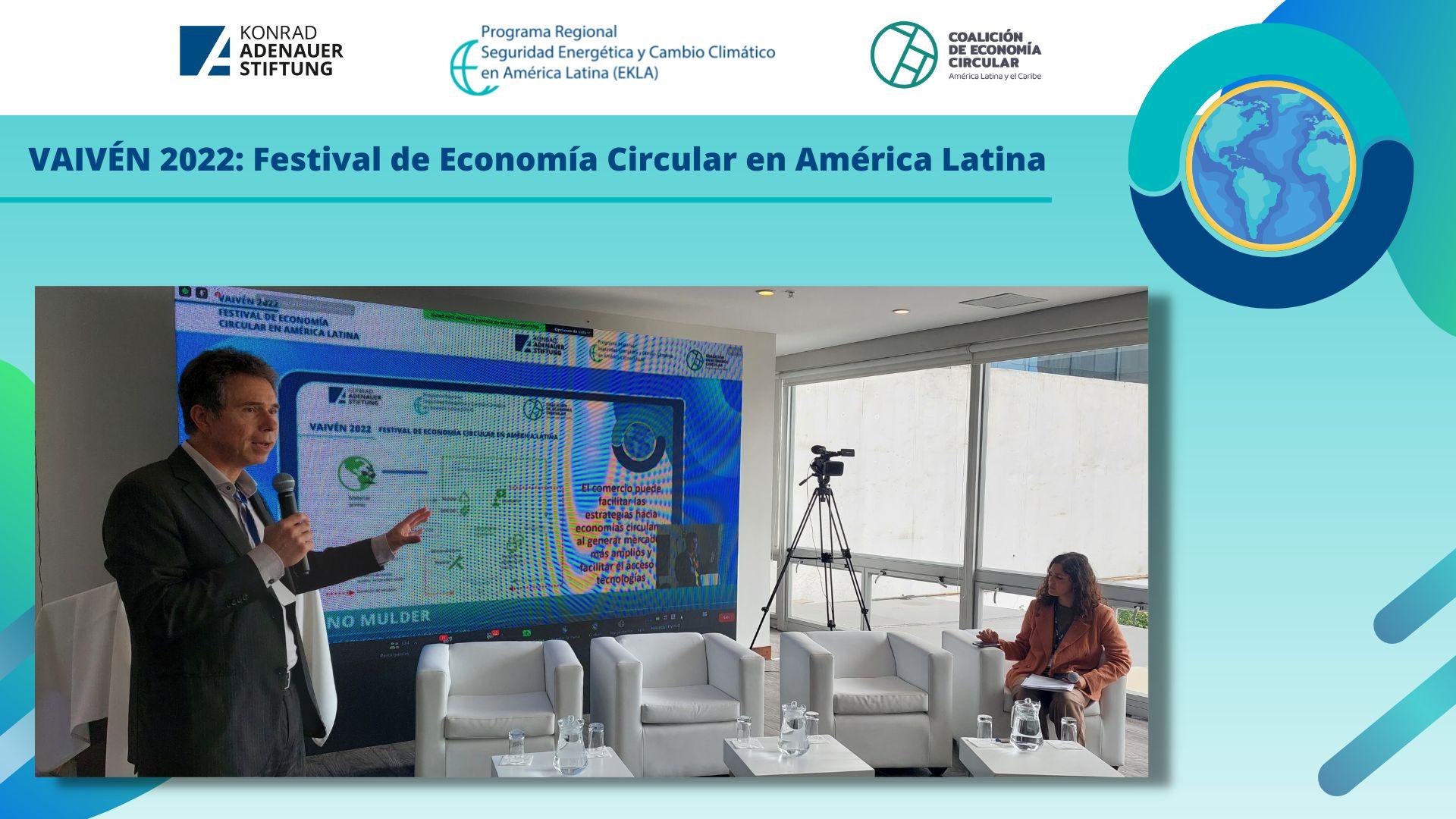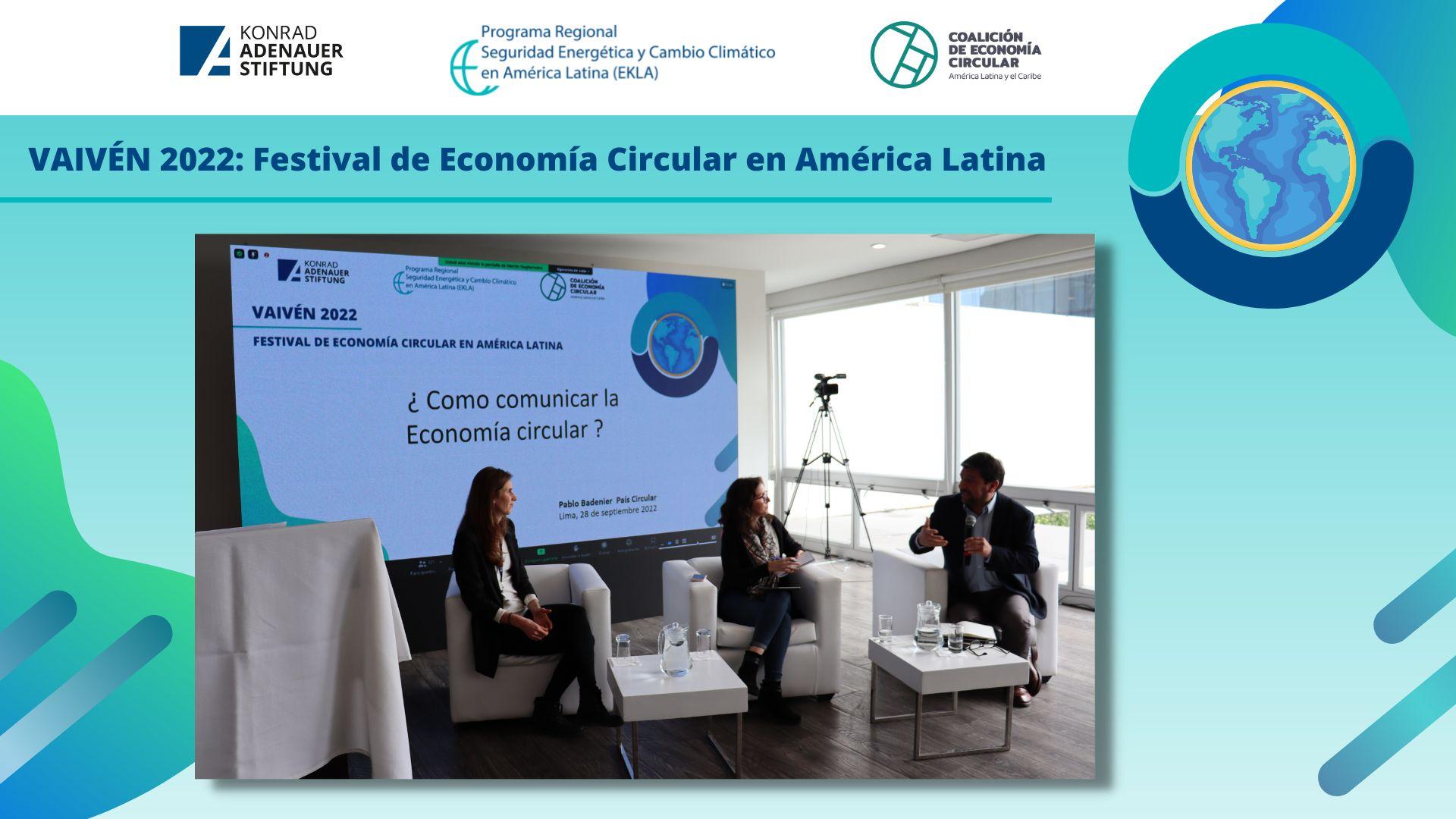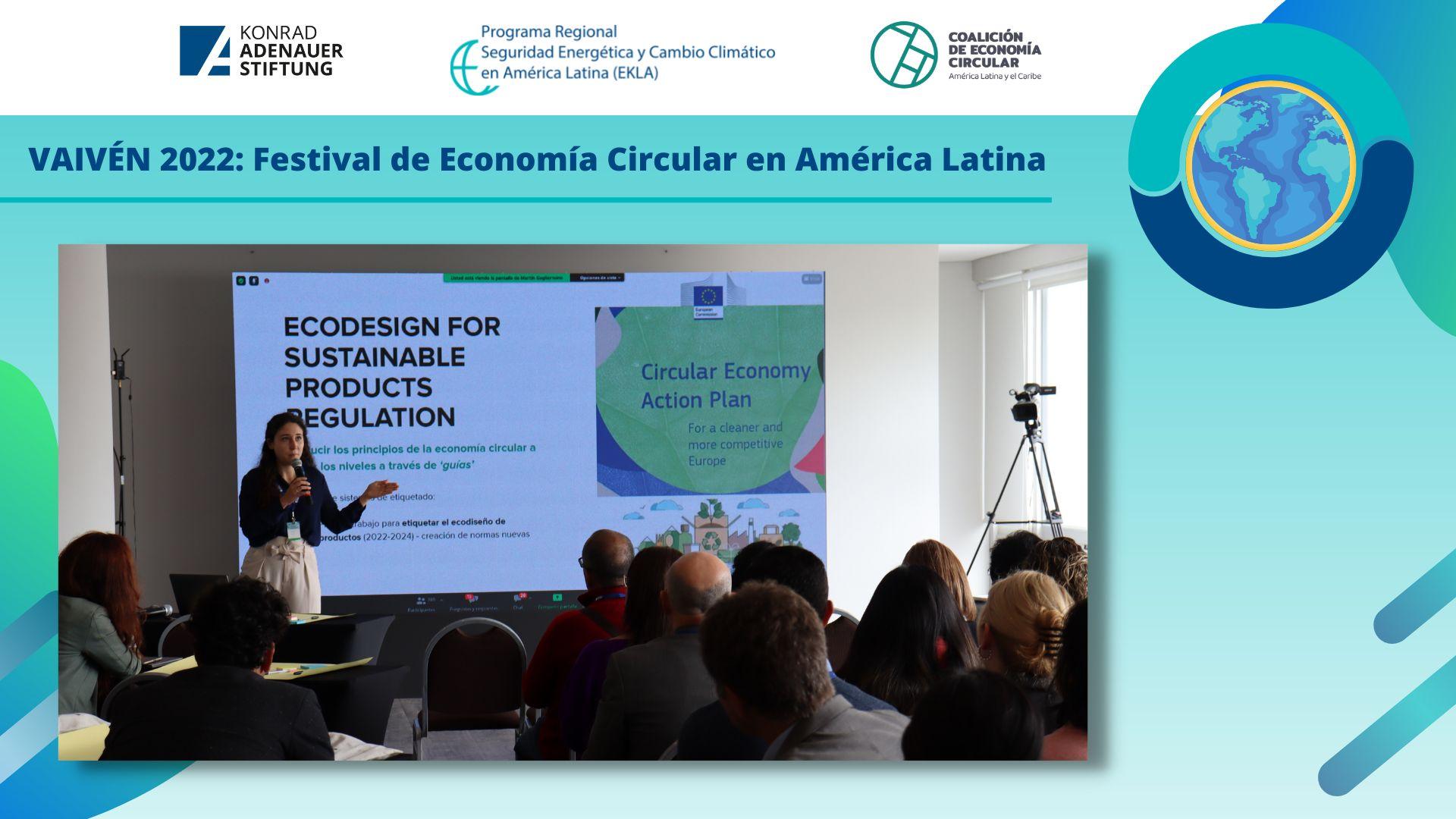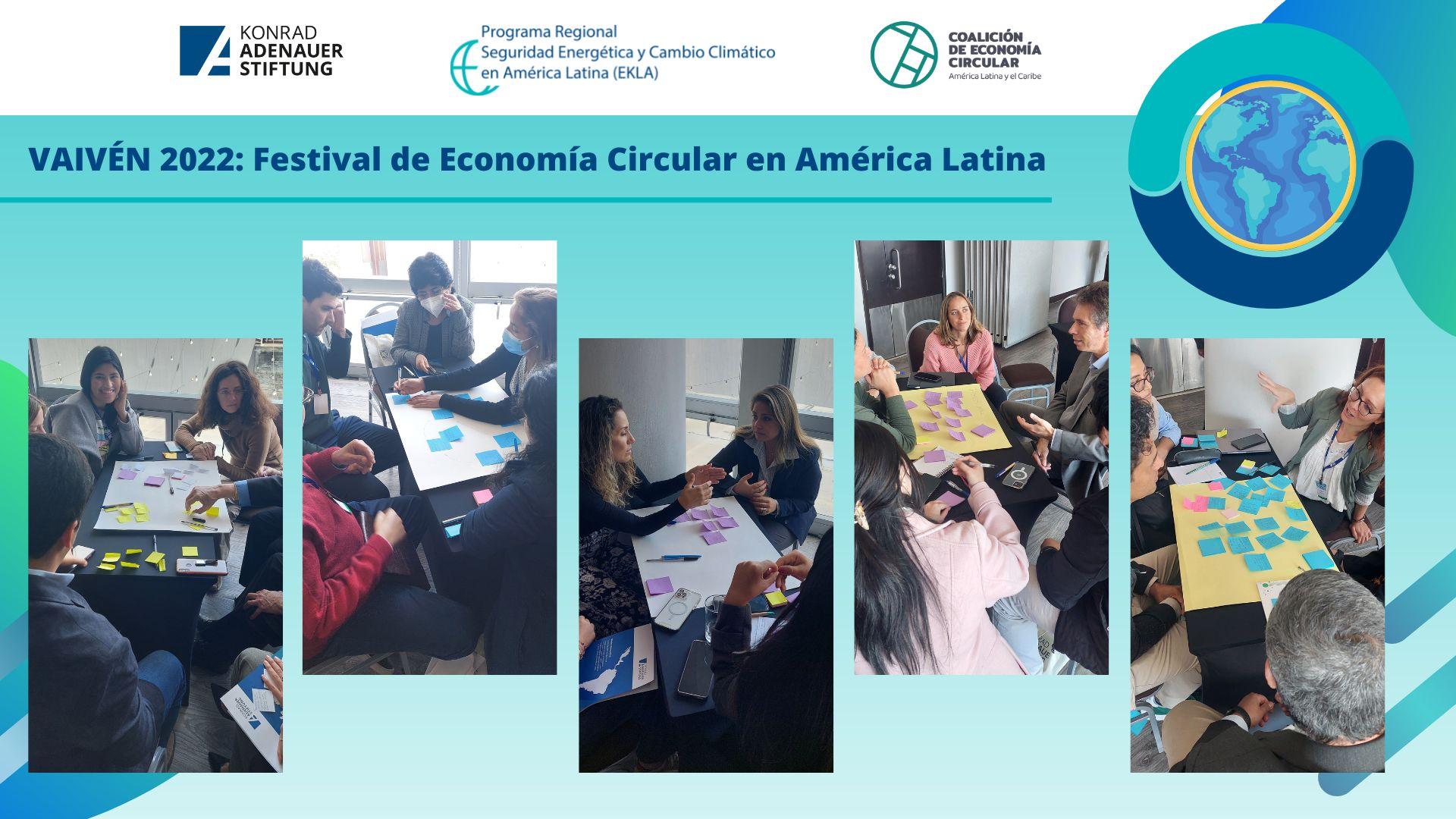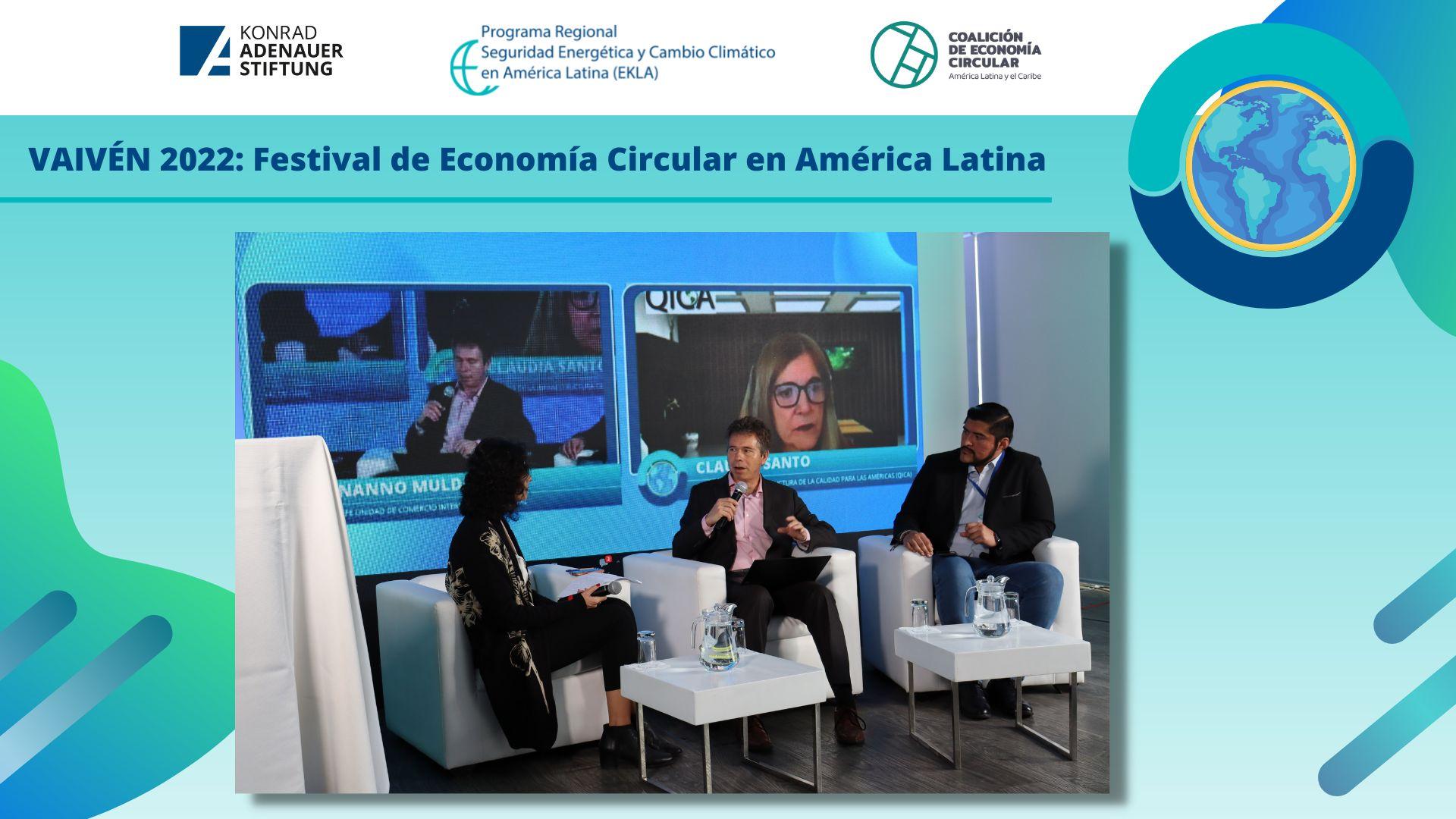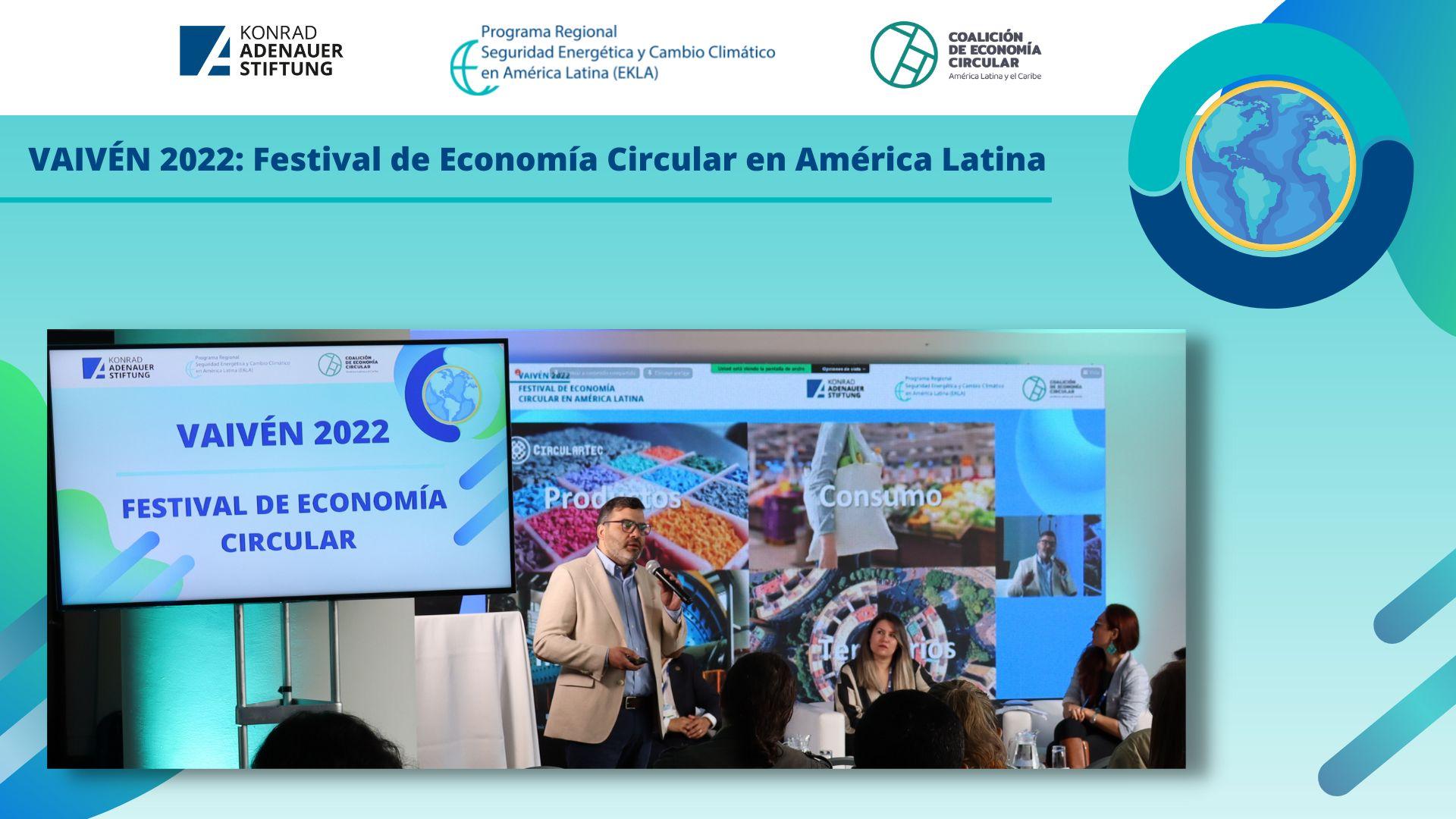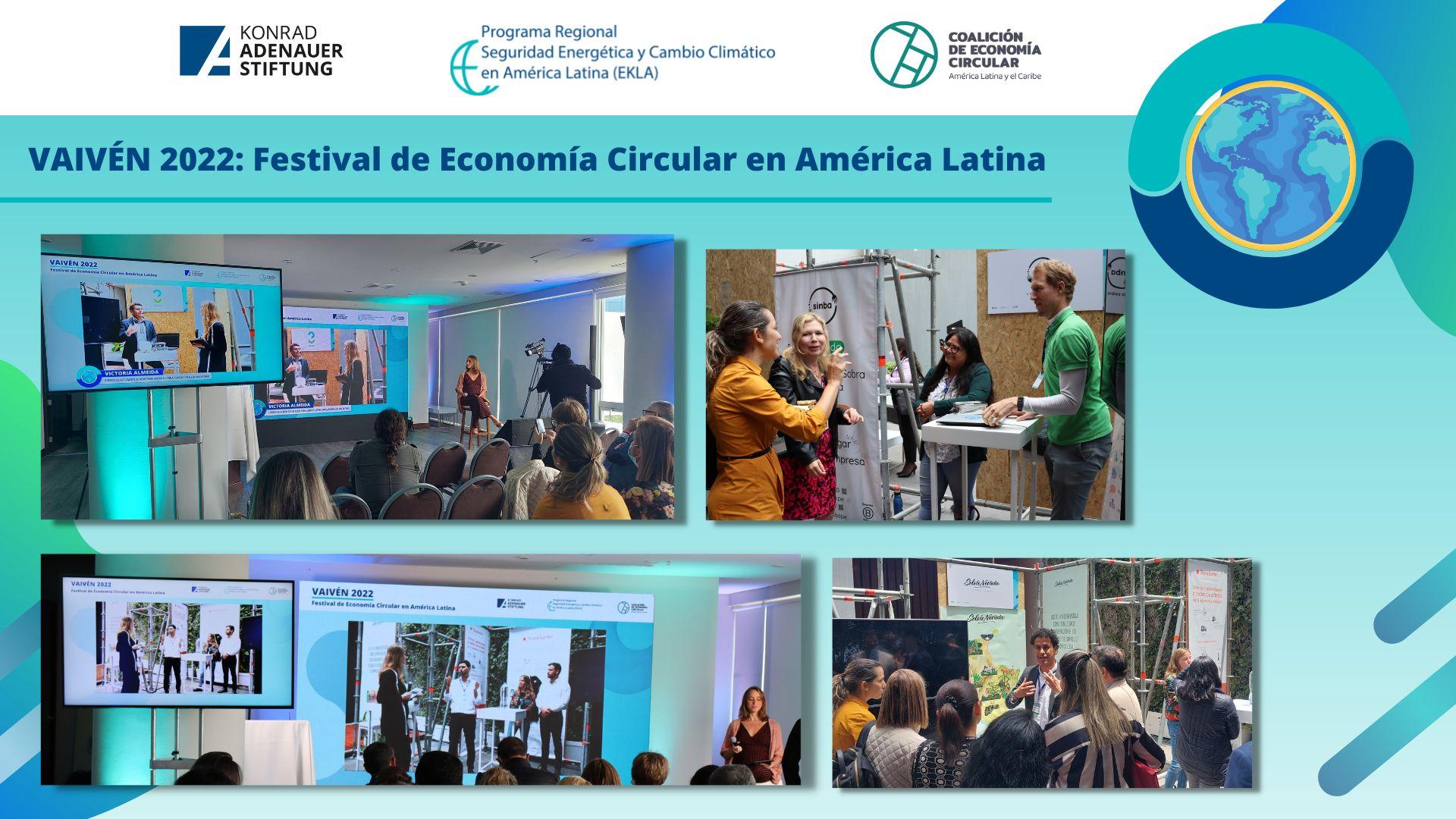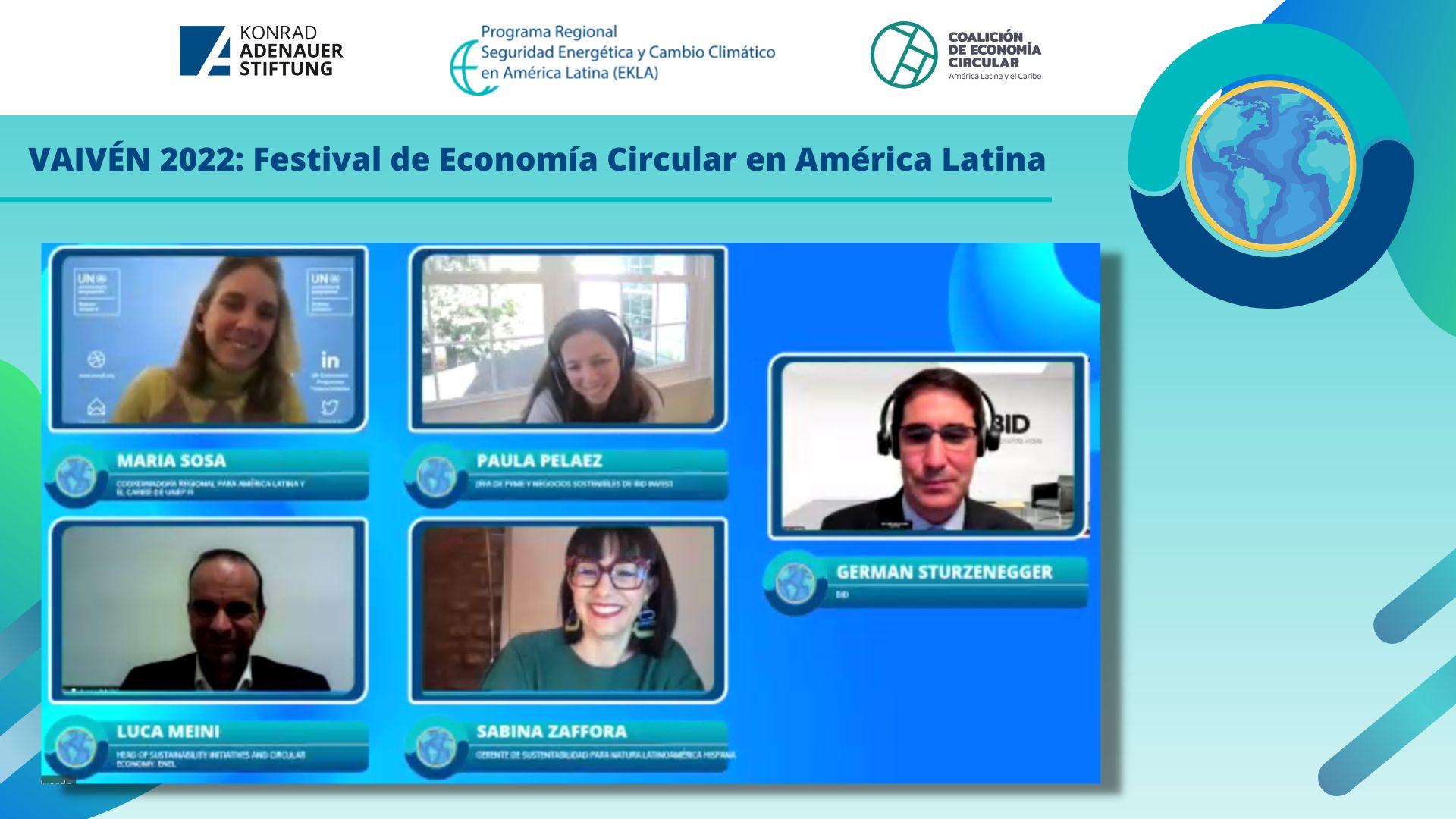In its most recent edition, the Festival ceased to be a virtual event to become a hybrid event that brought together different institutions and key actors from the region and its countries, in person and virtually, to dialogue and build bridges that encourage us to advance in the path to circularity.
The Festival took place in the city of Lima (Peru) on September 27, 28 and 29. Each day the plenaries were complemented with application workshops and interactive spaces to stimulate the exchange between actors. These different spaces were organized by the strategic partners that are members of the Coalition: Ellen MacArthur Foundation, Climate Technology Center and Network (CTCN), Economic Commission for Latin America and the Caribbean (ECLAC), United Nations Organization for Industrial Development (UNIDO), Inter-American Development Bank (IDB) and the Intersectoral Technical Committee for Circular Economy of Costa Rica.
The first day "Opening the way to the circular economy" aimed to exchange experiences of collaboration and generation of enabling conditions for the circular economy. Therefore, an introductory panel was held on key enabling conditions (such as networks, innovation and information). Then, there was a panel led by CTCN that focused on the dynamics of connecting actors for the circular economy (Matchmaking). In the following panel, led by UNIDO, trade was addressed as a key enabling condition for the region. Finally, a panel was held where public-private partnerships were emphasized as an enabling condition, where the success story of the Intersectoral Technical Committee of Costa Rica was presented, which was later complemented by a virtual workshop where other forms of public partnerships were discussed. private, such as collaboration for the construction of norms and public-private collaboration agreements.
The second day "Challenges and trends in the circular economy", aimed to promote a discussion on the challenges and trends in key issues of the circular economy. Therefore, an initial panel was held where trends for a low-carbon future were discussed. Then, a dynamic session on circular economy communication was held that focused on how to better communicate the concept and practice of the circular economy by understanding the opportunities with a systemic approach. Finally, a design workshop led by the Ellen MacArthur Foundation was held in which the circular economy was addressed from the perspective of systemic thinking and design, applicable to different sectors and actors.
The third day "Latin America and the Caribbean on the way to circularity", had the objective of publicizing the challenges and opportunities for action in the field of Circular Economy in the Latin American and Caribbean region. For this reason, an initial panel was held that addressed the common challenges for our region and how joint work can catalyze the transition towards circularity. Then, a session on multilevel governance was held, where it was explored how each level of government (national, regional and local) can promote the circular economy in different ways and how each one can collaborate. Then, #InnovationDay was held, a special activity that exhibited, virtually and in person, the work of different innovators from the region, such as Selva Nevada, TraceSurfer, TriCiclos, Sinba, Polybion, Genius Food, Algramo, YVY and TROC. Finally, a final virtual panel was held that focused on the role of the private sector and financing for the circular economy.
Through these three days, it was possible to present different key points for work on the circular economy in Latin America and the Caribbean. Likewise, it was possible to bring together many actors both in person and virtually: we have the participation of about 100 people in person and with more than 500 people virtually every day, mainly from countries such as Mexico, Peru, Colombia, Chile, Brazil, United States, Costa Rica, Spain, Argentina, Ecuador and others.
We are sure that the Circular Economy Festival has been one more step to promote collaboration in the region and to strengthen the objective of the Circular Economy Coalition in Latin America and the Caribbean. Likewise, it has laid the foundations for a next edition that continues to form ties and encourage the active participation of all the actors in the fulfillment of the shared vision of a circular economy for our region.
Material available
The recordings of the sessions and the slides used are available in the program section of the website (www.festivaleconomiacircular.com). Likewise, the Virtual Circular Fair is available on the web where you can find valuable information from some of the members of the Circular Economy Coalition in Latin America and Caribbean.





